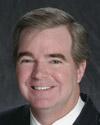After meeting with the Multi-Agency Task Force and talking with staff members about safety measures in and around the community, Chancellor Mark Emmert came home to drink a Sprite at his kitchen table while answering questions about his life during the past 18 months.
Emmert has had the largest task — to make sure everything is being done to keep the University community safe.
“It is essential that the chancellor be involved in all critical decisions,” Emmert said. “I have to set the tone for all campus leaders.”
This is not the first time Emmert has been in this situation or seen administrators try to make students care and pay attention to their community.
In 1974 and 1975, Emmert was a student at the University of Washington in Seattle pursuing a bachelor’s degree in political science. This was the same time a serial killer was terrorizing UW’s campus.
Emmert said as a student he remembers neither he nor his fellow students changed the way they lived.
“Everyone understood and very few people changed their behaviors,” Emmert said. “It is troubling because we have to work very hard to get people to change their behavior.”
He said his experiences convinced him it is hard to change the way people act. He also said he is encouraged to hear people say they follow friends home or call to make sure people are safe.
As students look to top officials for information, Emmert said he unfortunately cannot separate his chancellor role from his personal life.
When speaking with colleagues or his family, he said he brings up safety to get people talking and just watches what people say and do.
“Everyone wants to let everyone else know they are concerned and are taking action,” he said.
As a chancellor, husband and father, he said he is constantly talking about how to stay safe.
“I reference what I know are the right kinds of behavior,” Emmert said. “Hopefully, we are reassuring that lots and lots of people are working hard to keep the community safe.”
The University has made an effort to get as much safety information and tips to faculty, staff and students through e-mails and seminars.
With a smile and a look of confusion, Emmert said he could not remember the safety messages he received as a college student.
“That just proves they didn’t work,” he said.
Emmert is faced with finding a way for students to remember the messages they receive after the serial killer is out of the media attention.
He said if the same message is put out the same way, people will stop paying attention and they will be defeated.
Pushing his finger on his kitchen table to make each point, Emmert said the University is looking into different ways to broadcast its message in a meaningful and memorable way.
He said there is a level of caution and concern that is desirable among the University community.
“It is disappointing people have to feel that way,” Emmert said. “We are trying to control those things that we can control.”
As the conversation turned to the change in the mood of campus during the last 18 months, Emmert became weary and sad.
“There is a critical mass of concern, anger and frustration that has built up and required us to act differently,” he said. “There are some emotions that have caused a cumulative sense of loss and a cumulative sense of disruption to what is supposed to be a wonderful experience for all of us.”
He said the murders have caused everyone, including himself, to be more aware.
Emmert said a couple weeks ago he stopped a young woman jogging around the lakes alone to tell her it was not safe. The women informed him her friend was waiting for her down the road.
“I am concerned for people,” he said. “What we’re seeing is people expressing a little more attention. Especially me, because I feel a greater sense of responsibility.”
He said he knows a lot of people care and are in the same “boat together.”
“It is comforting to me,” Emmert said, “to know we all are working to do what we have to do to get this solved.”
Chancellor voices concern for students’ safety
March 20, 2003

Chancellor voices concern for students’ safety



